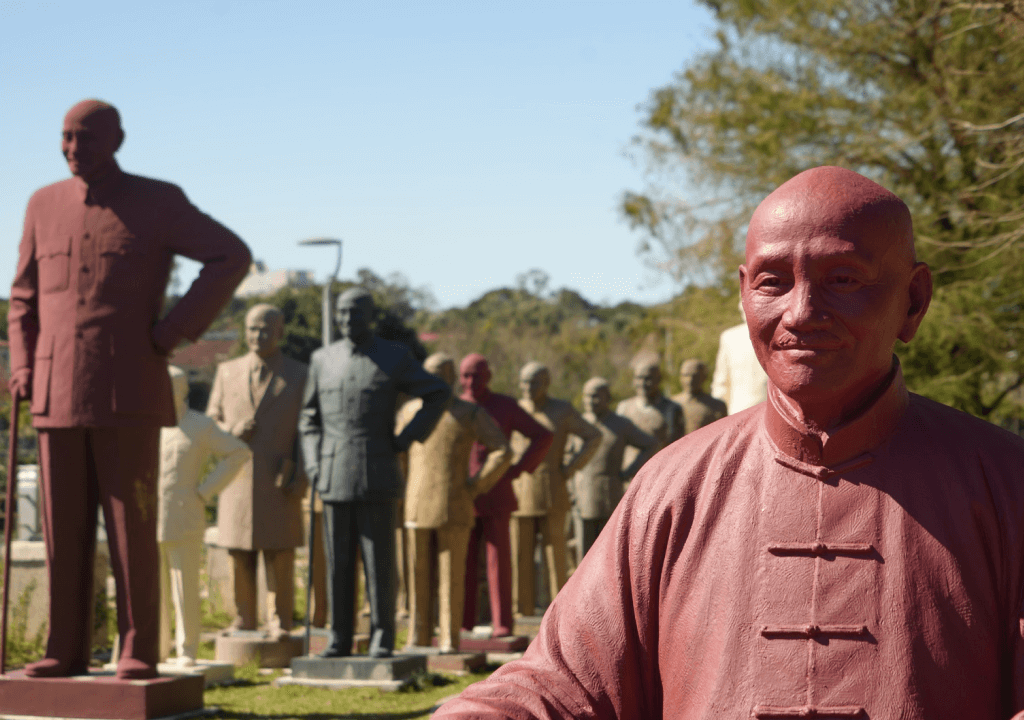There is a worldwide trend of erasing certain parts of history by removing statues and monuments. This phenomenon has been widely observed in Europe and America, where statues of slave traders have been taken down. Similarly, this trend has been evident in Eastern European states and former communist countries, where statues of communist leaders have been removed. Taiwan is poised to join this trend by accelerating the move to remove statues of former dictator Chiang Kai-shek. However, there is opposition to this initiative. Debates are raging about Chiang Kai-shek statues, who is widely regarded as the founder of Taiwan, despite his support for the One China policy.
In 2018, when the DPP’s Tsai Ing-wen held the presidency, the government established a transitional justice committee to investigate the rule of the former generalissimo, who served as the president of the Republic of China (ROC) in both China and Taiwan until his death in 1975. Many people continue to view Chiang Kai-shek, the Kuomintang leader of China, as part of the Republic of China formed in Mainland China under Sun Yat-sen, for many, he is remembered as someone who fought for democracy against communism before being exiled to Taiwan and continuing the Republic of China from there, thereby giving Taiwan a separate identity. However, for many Taiwanese people, he is seen as a Chinese military dictator who ruled the islands for decades under strict martial law and then transferred power to his son, as like the communist regime in Korea. By the end of martial law implemented by Chiang Kai-shek in 1987, as many as 140,000 people were estimated to have been imprisoned and another 3,000 to 4,000 executed for actual or perceived opposition to his party. Many argue that the island lost its identity and became a home of the Chinese exiled government, he was advocating for a One China policy that Taiwan doesn’t agree with. Chiang Kai-shek’s legacy remains a point of contentious debate, though the Justice Committee’s recommendation was to remove thousands of Chiang Kai-shek’s statues from public spaces.
Taiwan’s government has pledged to accelerate its efforts in response to calls for the removal of statues of Chiang Kai-shek. This pledge was made in response to criticism that the government was not moving quickly enough. Taiwan is adorned with statues of Chiang, and for years, the government and society have been engaged in debate over what to do with them, particularly the largest one inside Taipei’s Chiang Kai-shek Memorial Hall. Many statues have already been relocated, often to a park in northern Taipei, which has become famous for the thousands of Chiang likenesses arranged around its grounds. Indeed, Chiang Kai-shek strengthened Taiwan and prevented it from being invaded by the People’s Republic of China or Communist China. Chiang established defense training academies in Taiwan. Some in Taiwan argue that his legacy must be considered alongside his successes, pointing out that he also spearheaded Taiwan’s path to economic prosperity, and fought against both the Communists and the Japanese. The continued presence of the KMT as a major political party is seen as evidence of the people’s forgiveness toward Chiang.
Chiang Kai Shek’s legacy has long been a point of political contention in Taiwan. The discourse surrounding Chiang’s legacy is predominantly split along party lines, as the ruling Democratic Progressive Party advocates for discontinuing ongoing tributes, while the opposition Kuomintang Party accuses them of attempting to erase history. However, the DPP has encountered allegations of seeking to “de-sinicize” Taiwan by advocating for the cessation of Chiang’s memorialization. The party maintains a pro-Taiwan sovereignty stance, in contrast to the KMT’s ongoing embrace of Taiwan’s historical and cultural connections with China. Additionally, the KMT has voiced opposition to the transitional justice commission and its unfavorable findings against the party. The issue is now more political, and it will not be easy for the government to take actions faster. However, by removing Chiang Kai Shek statues, Taiwan is not only erasing the memories of the bad days under military rule but also severing ties with China. In the process, Taiwan will develop a distinct identity and history.








